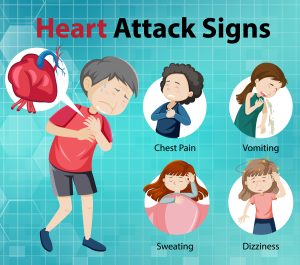10 Warning Signs of Mold Toxicity: Don’t Let Fungus Rule Your Health
It’s not simply unsightly to see mold, those fuzzy patches hiding in moist corners. Although many people mistakenly believe that prolonged contact to specific forms of mold triggers allergies, mold poisoning is a more subtle issue that can arise. This disorder is caused by long-term exposure to mycotoxins, 10 warning signs of mold toxicity are toxic compounds produced by some molds and have a devastating effect on the body.
What’s the tricky bit? The signs of weariness and allergy are similar to those of mold intoxication, making it simple to ignore. However, there may be long-term repercussions if you ignore these warning signs. Now, let us discuss the warning signals your body may be sending:
Here are The 10 Warning Signs of Mold Toxicity
- Respiratory Woes: The basic symptoms of respiratory distress include shortness of breath, chronic congestion, wheezing, and a persistent cough. Spores of mold irritate the respiratory tract, resulting in inflammation and these unsettling feelings.
- Skin Problems: Mold may be the cause of unexplained rashes, hives, itching, or even flare-ups of eczema. These unpleasant skin reactions might be brought on by immunological responses triggered by spore contact or inhalation.
- Brain Fog and Memory Problems: Do you frequently lose your memories, feel as though your mind is foggy, or find it difficult to concentrate? Toxins from mold can damage the central nervous system, which can result in cognitive impairment.
- Unexplained Fatigue and Malaise: People who are exposed to mold toxins frequently report of feeling exhausted all the time, even after getting enough sleep. Mycotoxins can cause the body to react by depleting your energy, making you feel exhausted all the time.
- Headaches and Migraines: Having frequent headaches, especially crippling migraines, may indicate exposure to mold. Mycotoxins have the ability to impair nervous system and blood flow, which exacerbates these excruciating episodes.
- Digestive Discomfort: Constipation, diarrhea, gas, bloating, or stomach pain are examples of digestive discomfort. Exposure to mold can damage gut flora, which can result in a variety of digestive problems.
- Joint Pain and Stiffness: Mold toxicity can cause aching joints, stiffness, and even pain that feels like arthritis. Mycotoxins can cause inflammation in your joints, which can cause pain and restricted range of motion.
- Anxiety and Mood Swings: Are you experiencing anxiety, depression, or irritability? Neurotransmitters are impacted by mold exposure, which can have an effect on your mood and emotional health.
- Hormonal Imbalances: Mold toxicity has been related to irregular menstrual cycles, inexplicable weight gain or loss, and other hormonal problems. The production and regulation of hormones can be disrupted by mycotoxins.
- Sleep Disorders: Mold exposure can affect your neurological system and cause insomnia, restless sleep, frequent awakening, and nightmares.
Recall: Experiences might differ from person to person, and this is not an entire list. See a medical expert with expertise in environmental health or mold poisoning if you believe you may have been exposed to mold and you are exhibiting several symptoms.
Taking Action
To manage mold poisoning, early identification and treatments are critical. What you can do is as follows:
- Determine the Source: Hire a trained expert to examine your house or place of business for mold.
- Remediate the Mold: Use expert remediation services to address the source of the mold growth.
- Support Your Body: Take into account detoxifying techniques and seek individualized advice from a medical expert.
Although mold exposure is a major problem, you may safeguard your health and regain your well-being by identifying the warning symptoms and acting upon them. Take charge of your health by being knowledgeable, proactive, and refusing to let mold sap your vitality!
The Bottom Line
It is critical to recognize the warning signs and symptoms of mold toxicity in order to protect one’s health and wellbeing. Mold, which is sometimes underappreciated, can have a wide range of negative consequences on the body, including hormone imbalance, respiratory difficulty, and cognitive decline. Mold toxicity is particularly sneaky since it can resemble common illnesses, delaying diagnosis and treatment.
By being aware of the risks and exercising caution, people can take proactive measures to reduce their exposure to mold. Regaining control over one’s health is possible with decisive steps like finding and fixing the causes of mold growth or getting professional help for detoxification and symptom management.











